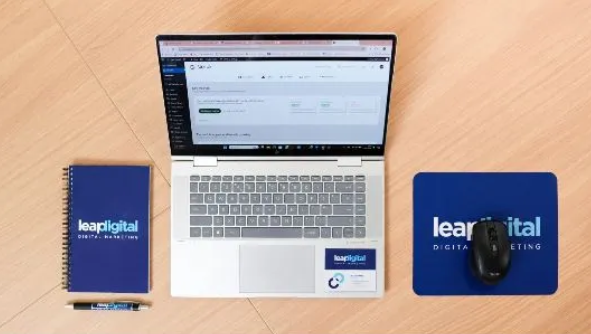What Is a Sustainability Reporting Platform?
A sustainability reporting platform is a digital tool that helps companies track, manage, and report their environmental, social, and governance (ESG) performance. In simple words, it shows how companies care for the planet, people, and how they run their business responsibly.
Businesses use these platforms to collect data about their energy use, carbon emissions, waste, and water usage. They also report on how they treat workers, support communities, and follow rules and laws. All this information is important for building trust with customers, investors, and the public.
Why Do Companies Need Sustainability Reporting?
More people today want to support eco-friendly businesses. Investors are also looking for companies that care about more than just profit. Because of this, companies must share their sustainability efforts clearly and honestly. That’s where a sustainability reporting platform becomes useful.
This platform makes it easier for businesses to:
-
Stay organized with all their ESG data
-
Follow rules and standards like GRI or SASB
-
Set goals and track progress
-
Show customers and investors that they care about the planet
Key Features of a Sustainability Reporting Platform
Most platforms come with several useful tools to help companies with their sustainability journey. Here are some common features:
Data Collection and Integration
These platforms collect data from many departments—like energy, HR, finance, and supply chain. They often connect with other systems the company already uses, so everything works together smoothly.
Real-Time Monitoring
Companies can track how much electricity they use or how much waste they produce in real time. This helps them react quickly if something goes wrong or if they need to make a change.
Custom Reports and Dashboards
The platform helps create clear and colorful reports and dashboards. These show how the company is doing on its goals. The reports are easy to understand, even for people who aren’t experts.
Goal Setting and Performance Tracking
Businesses can set goals like “reduce carbon emissions by 20% in 2 years” and track progress. The platform gives alerts and updates if things are going off track.
Benefits of Using a Sustainability Reporting Platform
There are many reasons why businesses choose to use a sustainability reporting platform:
Saves Time and Money
Manually collecting data and creating reports takes a lot of time. The platform automates these tasks, saving time and reducing human errors.
Better Decision Making
The platform provides data and insights that help leaders make smarter, greener decisions. For example, if the data shows high electricity use in one department, the company can make changes to fix it.
Builds Trust with Stakeholders
Sharing honest and clear reports builds trust with customers, employees, and investors. People want to support companies that do the right thing.
Meets Regulations and Standards
Many countries now have rules about reporting sustainability data. These platforms help companies follow those rules correctly and avoid fines.
Who Uses Sustainability Reporting Platforms?
Big companies, small businesses, and even government groups use these platforms. Here are some examples of users:
-
Manufacturing companies: Track water usage, emissions, and waste
-
Retail brands: Show how they support fair labor and reduce plastic use
-
Tech companies: Monitor energy use in data centers
-
Schools and universities: Report their recycling and energy-saving programs
Even small companies can benefit from these tools. As people ask more questions about business practices, being able to share solid data becomes a big advantage.
Choosing the Right Platform
There are many different platforms available today. When choosing one, companies should think about:
-
Ease of use: Is the platform simple and user-friendly?
-
Customization: Can it be changed to fit the company’s needs?
-
Support: Does the company get help when they need it?
-
Price: Is it affordable for the size of the business?
-
Data security: Will the company’s information be safe?
It’s important to pick a platform that fits the size and goals of the business. Some platforms are better for large corporations, while others are perfect for smaller organizations.
Common Terms in Sustainability Reporting
Here are a few words you may hear when talking about sustainability reporting platforms:
-
ESG: Stands for Environmental, Social, and Governance. These are the three key areas companies report on.
-
Carbon Footprint: The amount of carbon dioxide a company produces.
-
Net Zero: When a company balances the amount of greenhouse gases it emits with the amount it removes from the air.
-
GRI: Global Reporting Initiative, one of the most used reporting standards.
-
SASB: Sustainability Accounting Standards Board, another common standard for reporting.
Real-World Example
Let’s say a clothing brand wants to reduce its environmental impact. They use a sustainability reporting platform to measure energy use, track factory emissions, and monitor how much fabric goes to waste. The platform helps the company see where it can improve. Over a year, they reduce waste by 15% and cut energy use by 10%. Then, they create a report to show customers what they’ve done.
Customers see the effort and feel good buying from that brand. Investors also see that the company is working responsibly, which may increase their interest in funding.
The Future of Sustainability Reporting
Sustainability is not just a trend—it’s the future. More companies will use reporting platforms to stay transparent and responsible. These platforms will also use AI and smart technology to make reporting even easier and faster.
As new rules and customer demands grow, companies that use these platforms will stay ahead. They’ll be ready to meet goals, prove their efforts, and make the world a better place.
Conclusion
A sustainability reporting platform is more than just a software tool. It’s a way for companies to show they care about the planet and people. It helps them stay organized, make better choices, and build trust. As the world focuses more on sustainability, these platforms will play a big role in shaping better business practices.
By using such a platform, companies can make a real difference—step by step, report by report.









